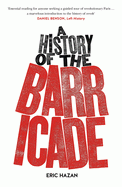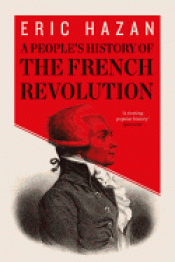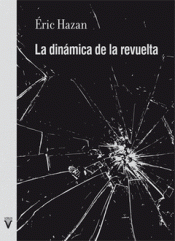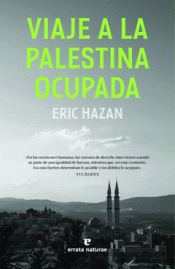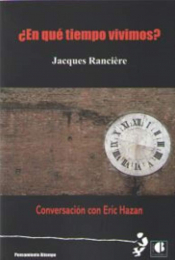How the French invented the barricade, and its symbolic impact on popular protests throughout history
In the history of European revolutions, the barricade stands as a glorious emblem. Its symbolic importance arises principally from the barricades of Eric Hazan's native Paris, where they were instrumental in the revolts of the nineteenth century, helping to shape the political life of a continent.
The barricade was always a makeshift construction (the word derives from barrique or barrel), and in working-class districts these ersatz fortifications could spread like wildfire. They doubled as a stage, from which insurgents could harangue soldiers and subvert their allegiance. Their symbolic power persisted into May 1968 and, more recently, the Occupy movements.
Hazan traces the many stages in the barricade's evolution, from the Wars of Religion through to the Paris Commune, drawing on the work of thinkers throughout the periods examined to illustrate and bring to life the violent practicalities of revolutionary uprising.
A HISTORY OF THE BARRICADE
AUTOR/A
HAZAN, ERIC
Eric Hazan nace en París en 1936, hijo de madre palestina apátrida y padre judío. Es cirujano durante más de veinticinco años hasta que, en 1983, retoma la dirección de la Editorial Hazan, fundada por su padre y especializada en libros de arte. Abandona la editorial tras ser ésta comprada por el Grupo Hachette y modificados algunos de sus principales planteamientos editoriales. Funda entonces la editorial La Fabrique, con el propósito de ofrecer una voz discordante frente al consenso político-intelectual generalizado, un proyecto que nace en 1998 y hoy en día es reconocido como uno de los buques insignia de la edición independiente en Europa. Su compromiso político se retrotrae a su participación en la Guerra de Argelia junto al FLN, más tarde fue miembro fundador de la Asociación Médica Franco-Palestina ?permaneció en Líbano durante la guerra ejerciendo como médico? y actualmente es miembro del Comité de Patrocinio del Tribunal Russell sobre Palestina. Igualmente, es autor de los siguientes libros: L?Invention de Paris, il n?y a pas de pas perdus (Le Seuil, 2002), Chroniques de la guerre civile (La Fabrique, 2004), Changement de propriétaire. La guerre civile continue (Le Seuil, 2007). Errata naturae publicó en 2010 otra de sus obras, Viaje a la Palestina ocupada.

